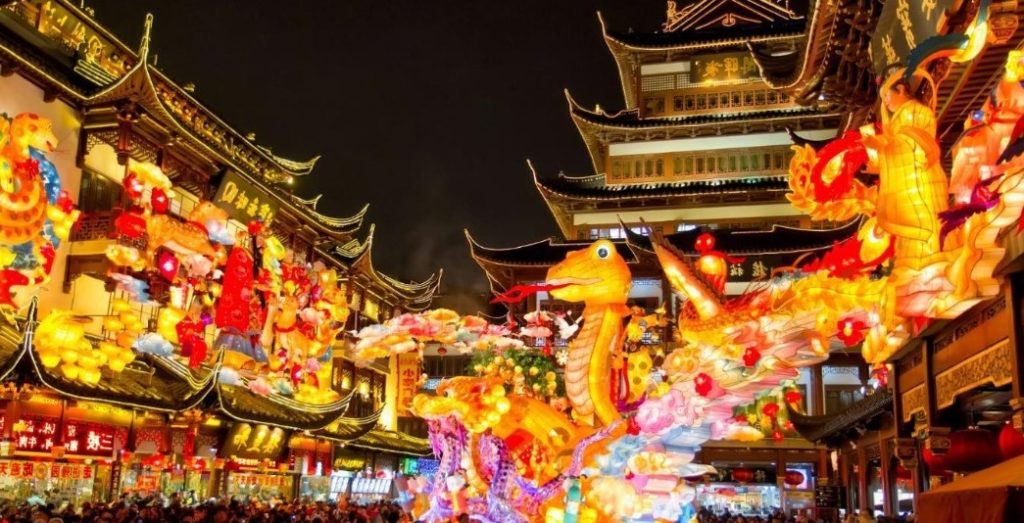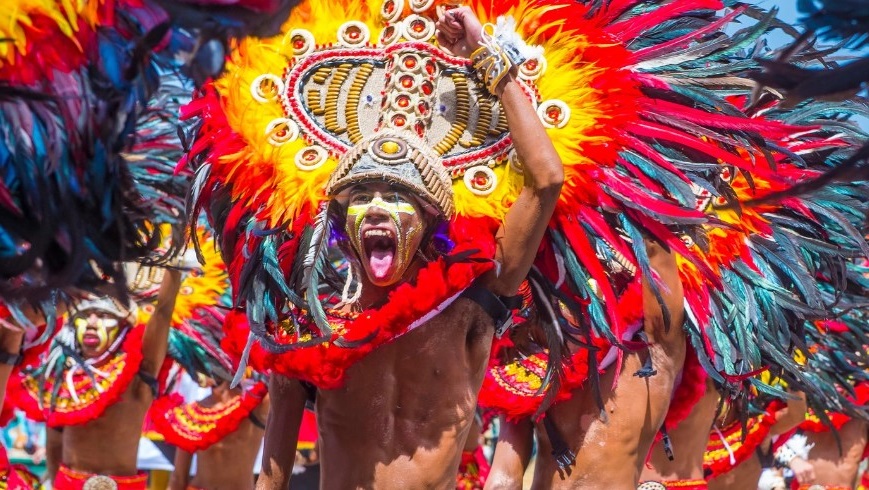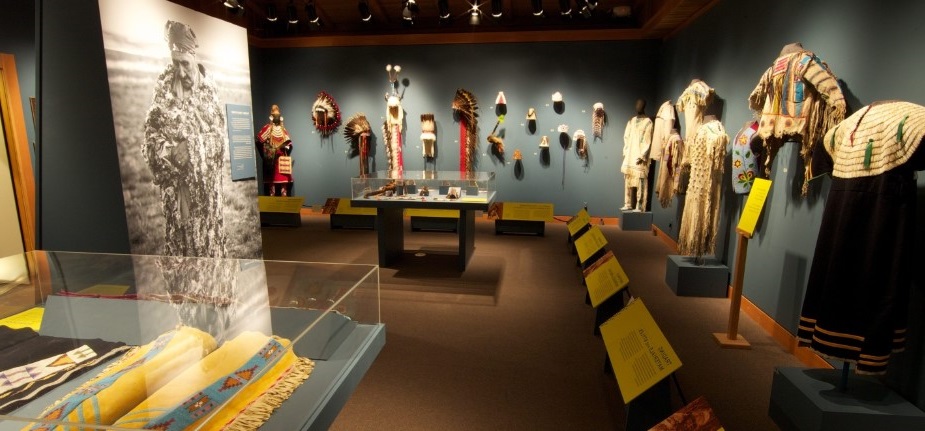
Table of Contents
A. Brief Overview
1. Definition and Purpose
Asian Culture Festival, The concept of diversity refers to the recognition and respect of differences within a society, organization, or group. This includes, but is not limited to, differences in race, gender, age, ethnicity, religion, sexual orientation, and physical abilities. The purpose of acknowledging and valuing diversity is to create an inclusive environment where various perspectives and backgrounds are not only accepted but also seen as a valuable asset. Embracing diversity fosters understanding and respect among individuals, leading to improved collaboration and innovation in various sectors.
2. Celebration of Diversity
Celebrating diversity involves acknowledging and appreciating the rich array of differences present in a community or organization. This celebration is not merely about recognizing differences but also about understanding and learning from these varied backgrounds and experiences. Such a celebration can take many forms, from cultural festivals and educational programs to inclusive policies and practices in the workplace. The aim is to build a more inclusive and equitable society where every individual feels valued and empowered, regardless of their background or identity. By celebrating diversity, we promote a deeper understanding of each other, enrich our experiences, and strengthen the social fabric of our communities.
Event Details
A. Date and Time
1. Opening and Closing Ceremony
The Asian Culture Festival will commence with an opening ceremony designed to set the tone for the event, highlighting the importance of diversity and inclusion. This ceremony is scheduled to begin at 10:00 AM on the first day of the festival. The closing ceremony, aimed at encapsulating the experiences and learnings of the festival, will take place at 8:00 PM on the final day, marking the end of the event.
2. Duration of the Festival
The festival is planned to span three days, offering an extensive program that allows attendees to fully immerse themselves in various activities and experiences celebrating diversity. The daily schedule will run from 10:00 AM to 8:00 PM, providing ample time for participants to explore and engage with the festival’s offerings.
B. Venue
1. Location and Accessibility
The festival will be held in a centrally located, easily accessible public park that is well-connected by various modes of transportation. The location has been chosen for its spaciousness and natural beauty, offering a welcoming and inclusive atmosphere. Special attention has been given to ensure accessibility for all, including wheelchair ramps and sign language interpreters to cater to the needs of attendees with disabilities.
2. Facilities and Amenities
To ensure a comfortable and enjoyable experience for all attendees, the festival venue will be equipped with a range of facilities and amenities. These include ample restrooms, first aid stations, a variety of food and beverage options catering to different dietary needs, and relaxation zones. Information desks and lost-and-found services will also be available to assist attendees throughout the festival.
Theme
A. Unveiling Unity in Diversity
1. Embracing Cultural Differences
The theme of “Unveiling Unity in Diversity” reflects the Asian Culture Festival commitment to celebrating the rich tapestry of cultures that make up our society. Through various performances, exhibits, and interactive sessions, the festival will provide a platform for embracing and learning about the diverse cultural backgrounds that participants bring. This aspect of the festival encourages open-mindedness, respect, and appreciation for the uniqueness of each culture represented.
2. Showcasing Common Threads
Alongside celebrating cultural differences, the festival also aims to showcase the common threads that bind us together. Through collaborative activities and shared experiences, participants will be encouraged to discover and celebrate the shared values, aspirations, and human experiences that transcend cultural boundaries. This approach fosters a sense of unity and solidarity among attendees, highlighting that despite our differences, we share much in common.
Featured Cultural Highlights

A. Traditional Performances
1. Dance and Music Showcases
The Festival of Asian Traditions will feature a vibrant array of dance and music showcases, highlighting traditional forms from around the world. These performances will not only entertain but also educate attendees about the rich cultural heritage of various communities. From energetic African drumming to graceful Asian dances, and from soulful Latin American music to traditional European folk tunes, these showcases will offer a melodious journey around the globe.
2. Theatrical Performances
In addition to musical and dance acts, the festival will present theatrical performances that tell stories from diverse cultures. These plays and skits, ranging from classical to contemporary styles, will provide insights into different cultural narratives, myths, and legends, offering a deeper understanding of the values, beliefs, and experiences of various communities.
B. Culinary Delights
1. Food Stalls and Demonstrations
A major highlight of the festival will be its culinary section, featuring food stalls offering a wide range of traditional dishes from across the world. These stalls will not only serve delicious food but will also host cooking demonstrations, allowing attendees to witness the art of preparing these exquisite dishes and learn about the history and significance of various cuisines.
2. Cooking Competitions
To further engage attendees, the festival will organize cooking competitions. These contests will invite participants to showcase their culinary skills in creating traditional dishes, fostering a fun and interactive environment. The competitions will be a celebration of culinary diversity and a testament to the universal language of food.
Interactive Workshops
A. Traditional Arts and Crafts
1. Calligraphy and Origami
Attendees will have the opportunity to participate in workshops on traditional arts and crafts such as calligraphy and origami. These workshops will be led by skilled artisans and will provide hands-on experience in these ancient art forms, demonstrating the intricacies and beauty of cultural artistic traditions.
2. Traditional Clothing Draping
Another engaging workshop will be on traditional clothing draping. Here, participants can learn how to drape garments such as sarees, kimonos, and togas, providing a unique insight into the cultural significance and techniques involved in wearing traditional attire from various parts of the world.
B. Language Tutorials
1. Basic Phrases in Various Languages
Language tutorials will be a key feature of the interactive workshops, where attendees can learn basic phrases in a variety of languages. This initiative aims to promote linguistic diversity and encourage cross-cultural communication.
2. Language Exchange Booths
The Asian Culture Festival will also have language exchange booths, where participants can practice languages with native speakers. This not only helps in learning a new language but also fosters cultural exchange and understanding through conversation.
Cultural Exhibits

A. Art Displays
1. Painting and Sculpture Exhibitions
The Asian Culture Festival will feature an extensive range of painting and sculpture exhibitions, showcasing works from various cultures around the world. These exhibits will display traditional and contemporary art forms, providing insights into the artistic expressions and aesthetics unique to each culture. The exhibitions will include both renowned and emerging artists, highlighting the diversity and evolution of artistic styles across different societies.
2. Photographic Showcases
Additionally, there will be photographic showcases capturing the essence of diverse cultures, landscapes, and peoples. These photographs will range from stunning natural scenes to intimate portraits of daily life in different communities, offering a visual journey that celebrates the beauty and richness of our world’s cultural tapestry.
B. Historical Showcases
1. Cultural Evolution Timeline
A key feature of the Asian Culture Festival will be a ‘Cultural Evolution Timeline’ exhibit. This will be an interactive and educational display outlining the historical progression of various cultures. It will include significant historical milestones, cultural achievements, and notable historical figures, providing a comprehensive overview of how different cultures have evolved over time.
2. Historical Artefacts Exhibition
The festival will also include an exhibition of historical artifacts, offering a tangible connection to the past. This exhibit will showcase items of significant cultural and historical value, such as ancient manuscripts, traditional attire, and historic tools, allowing attendees to gain a deeper understanding of the historical contexts of different cultures.
Community Engagement
A. Panel Discussions
1. Cultural Preservation
Panel discussions at the Asian Culture Festival will address important topics such as cultural preservation. These discussions will feature experts and community leaders who will talk about the importance of preserving cultural heritage and the methods being employed to ensure that traditional practices, languages, and customs are kept alive for future generations.
2. Challenges and Opportunities
Another set of panel discussions will focus on the challenges and opportunities faced by diverse communities in a globalized world. Topics will include integration, multiculturalism, and the role of technology in promoting cultural exchange.
B. Community Booths
1. NGO Participation
Community booths will feature participation from various NGOs that work in the fields of cultural preservation, education, and community development. These booths will provide information about their work and how attendees can get involved or support these causes.
2. Social and Cultural Initiatives
These booths will also highlight different social and cultural initiatives that aim to promote diversity, inclusivity, and cultural exchange within communities. Attendees can learn about local projects, volunteer opportunities, and community programs.
Family-Friendly Activities

A. Kid’s Zone
1. Cultural Games and Activities
Pan-Asian Cultural Event, The Asian Culture Festival will have a dedicated Kid’s Zone, offering a variety of cultural games and activities designed for children. These activities will be both fun and educational, providing younger attendees with an engaging way to learn about different cultures.
2. Storytelling Sessions
Storytelling sessions will be part of the Kid’s Zone, where children can listen to folk tales and stories from around the world. These sessions aim to educate children about diverse cultures through engaging and entertaining narratives.
B. Family Competitions
1. Costume Contests
Families will be encouraged to participate in costume contests, where they can dress up in traditional attire from various cultures. This activity is designed to be a fun and creative way to engage with different cultural heritages.
2. Family Talent Shows
The Asian Culture Festival will also host family talent shows, providing a platform for families to showcase their talents, whether it be in singing, dancing, or any other form of cultural expression. This activity aims to foster family bonding and celebrate the diversity of talents within the community.
Marketplace
A. Traditional Merchandise
1. Artisanal Crafts
The marketplace will be a vibrant area where attendees can browse and purchase a variety of artisanal crafts. These will include handmade items such as pottery, jewelry, textiles, and other traditional crafts from around the world. This section of the marketplace provides a platform for artisans to showcase their skills and for visitors to acquire unique and culturally rich items.
2. Traditional Clothing and Accessories
Another key feature of the marketplace will be a selection of traditional clothing and accessories from various cultures. Attendees will have the opportunity to purchase authentic garments, such as kimonos, saris, dashikis, and more, along with accessories like scarves, hats, and traditional jewelry. This offers a unique chance to appreciate and take home a piece of cultural heritage.
B. Global Market
1. International Vendors
The global market section will host international vendors, offering a range of products from across the world. This part of the marketplace will not only be a shopping experience but also an opportunity for cultural exchange and learning about the global community through trade.
2. Cultural Exchange through Trade
The presence of international vendors will facilitate cultural exchange through trade. Attendees will engage with sellers from different countries, learning about the significance of their products and the stories behind them. This interaction promotes a deeper understanding and appreciation of global cultures.
Closing Ceremony
A. Highlights Recap
1. Best Performances
The closing ceremony will include a recap of the best performances from the Asian Culture Festival, showcasing the most memorable dance, music, and theatrical acts. This will give attendees a chance to relive the highlights and celebrate the artistic talent displayed during the festival.
2. Memorable Moments
Along with the performances, the ceremony will also highlight other memorable moments from the festival, including workshops, exhibits, and special events. This recap will serve as a reflection of the festival’s success in celebrating cultural diversity.
B. Thank You Note
1. Acknowledging Participants and Sponsors
A significant part of the closing ceremony will be dedicated to thanking all participants, including performers, workshop leaders, vendors, and volunteers, as well as the sponsors who made the festival possible. This acknowledgment is crucial in recognizing the collaborative effort involved in organizing the event.
2. Looking Forward to Future Festivals
The closing remarks will include a note of anticipation for future festivals, emphasizing the event’s role in fostering a continuous celebration of diversity and cultural exchange. This will also be an opportunity to invite attendees to be part of upcoming events.
Social Media Integration
A. Official Hashtags
1. Encouraging User Engagement
The Asian Culture Festival will promote official hashtags to encourage user engagement on social media. Attendees will be invited to share their experiences, photos, and stories using these hashtags, creating a digital footprint of the festival’s most enjoyable moments.
2. Creating an Online Community
By using official hashtags, the festival aims to create an online community where attendees can connect, share, and extend their experiences beyond the physical event. This online presence will help in spreading the message of cultural diversity and inclusion to a broader audience, extending the festival’s impact.
Ticketing and Admission
A. Pricing Tiers
1. Early Bird Specials
To encourage early interest and booking, the Asian Culture Festival will offer Early Bird Specials. These tickets will be available at a reduced price for a limited period before the event. This tier is perfect for those who are certain about their attendance and wish to plan ahead, offering them a cost-effective option.
2. VIP Packages
For those looking for a more exclusive experience, the festival will offer VIP Packages. These tickets will include premium benefits such as front-row seats at performances, access to VIP lounges, complimentary refreshments, and meet-and-greet opportunities with performers and speakers. VIP Packages are designed for those who wish to enjoy the festival with added luxury and convenience.
B. Inclusivity Measures
1. Student Discounts
Recognizing the importance of making the festival accessible to younger audiences, student discounts will be available. These discounted tickets will require valid student identification and are aimed at encouraging the participation of students in this cultural celebration.
2. Community Group Rates
To facilitate group attendances and promote community involvement, the festival will offer special rates for community groups. These discounted group rates will be available for organizations, cultural associations, and other community groups wishing to experience the festival together.
Contact Information
A. Festival Organizers
1. Event Manager Contact
For inquiries, the event manager can be contacted directly. The contact information including phone number and email address will be provided on the festival’s official website and promotional materials.
2. Social Media Handles
The Asian Culture Festival will maintain an active presence on various social media platforms. The official social media handles for platforms like Facebook, Twitter, Instagram, and LinkedIn will be made available for the public to follow for updates, engage with the festival community, and share their experiences.
Table Breakdown:
| Section | Subsection | Details |
| Introduction | A. Brief Overview | 1. Definition and Purpose: Recognizing and respecting differences for an inclusive environment. 2. Celebration of Diversity: Fostering understanding and collaboration. |
| Event Details | A. Date and Time | 1. Opening and Closing Ceremony: 10:00 AM and 8:00 PM. 2. Duration: Three days, 10:00 AM to 8:00 PM daily. |
| B. Venue | 1. Location and Accessibility: Central public park with wheelchair ramps and sign language interpreters. 2. Facilities: Restrooms, first aid, food options, information desks. | |
| Theme | A. Unveiling Unity in Diversity | 1. Embracing Cultural Differences. 2. Showcasing Common Threads. |
| Featured Cultural Highlights | A. Traditional Performances | 1. Dance and Music Showcases: Global traditional performances. 2. Theatrical Performances: Stories from diverse cultures. |
| B. Culinary Delights | 1. Food Stalls and Demonstrations. 2. Cooking Competitions. | |
| Interactive Workshops | A. Traditional Arts and Crafts | 1. Calligraphy and Origami. 2. Traditional Clothing Draping. |
| B. Language Tutorials | 1. Basic Phrases in Various Languages. 2. Language Exchange Booths. | |
| Cultural Exhibits | A. Art Displays | 1. Painting and Sculpture Exhibitions. 2. Photographic Showcases. |
| B. Historical Showcases | 1. Cultural Evolution Timeline. 2. Historical Artefacts Exhibition. | |
| Community Engagement | A. Panel Discussions | 1. Cultural Preservation. 2. Challenges and Opportunities. |
| B. Community Booths | 1. NGO Participation. 2. Social and Cultural Initiatives. | |
| Family-Friendly Activities | A. Kid’s Zone | 1. Cultural Games and Activities. 2. Storytelling Sessions. |
| B. Family Competitions | 1. Costume Contests. 2. Family Talent Shows. | |
| Marketplace | A. Traditional Merchandise | 1. Artisanal Crafts. 2. Traditional Clothing and Accessories. |
| B. Global Market | 1. International Vendors. 2. Cultural Exchange through Trade. | |
| Closing Ceremony | A. Highlights Recap | 1. Best Performances. 2. Memorable Moments. |
| B. Thank You Note | 1. Acknowledging Participants and Sponsors. 2. Looking Forward to Future Festivals. | |
| Social Media Integration | A. Official Hashtags | 1. Encouraging User Engagement. 2. Creating an Online Community. |
| Ticketing and Admission | A. Pricing Tiers | 1. Early Bird Specials. 2. VIP Packages. |
| B. Inclusivity Measures | 1. Student Discounts. 2. Community Group Rates. | |
| Contact Information | A. Festival Organizers | 1. Event Manager Contact. 2. Social Media Handles. |
| Conclusion | A. Inviting All to Celebrate Diversity | 1. Closing Statement. 2. Anticipating a Vibrant Festival Experience. |
Conclusion
A. Inviting All to Celebrate Diversity
1. Closing Statement
In conclusion, this festival is more than just an event; it’s a celebration of the rich diversity that shapes our world. We invite people from all walks of life to join us in this unique and vibrant experience, where cultural differences are not just acknowledged but celebrated.
2. Anticipating a Vibrant Asian Culture Festival
We look forward to providing an unforgettable, vibrant Asian Culture Festival that not only entertains but also educates and unites. We eagerly anticipate the participation of people from various backgrounds, coming together to share and celebrate the beauty of diversity. Join us in making this festival a memorable event that highlights the importance of cultural understanding and inclusivity.
FAQ (Frequently Asked Questions):
- When does the Asian Culture Festival start and end?
- The Asian Culture Festival begins with the opening ceremony at 10:00 AM on the first day and concludes with the closing ceremony at 8:00 PM on the final day.
- Where is the festival venue located?
- The festival will be held in a centrally located, easily accessible public park with attention to inclusivity, including wheelchair ramps and sign language interpreters.
- What is the theme of the festival?
- The theme is “Unveiling Unity in Diversity,” emphasizing the celebration and understanding of cultural differences while showcasing common threads that bind us together.
- What are the key features of the traditional performances?
- The festival will feature dance and music showcases from around the world, as well as theatrical performances telling stories from diverse cultures.
- What can attendees expect in the culinary section?
- The culinary section includes food stalls offering traditional dishes, cooking demonstrations, and cooking competitions, providing a rich experience of global cuisines.
- What interactive workshops will be available?
- Attendees can participate in workshops on traditional arts and crafts, including calligraphy, origami, and traditional clothing draping. Language tutorials and language exchange booths will also be available.
- What exhibits are featured in the festival?
- Cultural exhibits include painting and sculpture exhibitions, photographic showcases, a cultural evolution timeline, and an exhibition of historical artifacts.
- How is community engagement promoted at the festival?
- Panel discussions on cultural preservation and challenges and opportunities, along with community booths featuring NGOs and social and cultural initiatives, facilitate community engagement.
- Are there family-friendly activities?
- Yes, there is a Kid’s Zone with cultural games and activities, storytelling sessions, costume contests, and family talent shows.
- What can visitors find in the marketplace?
- The marketplace offers traditional merchandise such as artisanal crafts, traditional clothing, and accessories, along with a global market featuring international vendors.
- How can attendees engage on social media?
- Official hashtags will be promoted for user engagement, creating an online community where attendees can share their experiences and extend their connection beyond the physical event.
- Are there any ticketing discounts available?
- Yes, there are Early Bird Specials, VIP Packages, student discounts, and community group rates to make the festival accessible to a diverse audience.
- How can I contact the festival organizers?
- Contact information for the event manager, including phone number and email, will be provided on the festival’s official website and promotional materials. Social media handles will also be available for updates.
- What happens at the closing ceremony?
- The closing ceremony includes a recap of the best performances, highlighting memorable moments from the festival, and a thank-you note acknowledging participants, sponsors, and looking forward to future festivals.
Read More :
9 EXPLORING THE GLOBAL TAPESTRY: MULTI CULTURE TRAVEL WORLD TOP-NOTCH
7 BENEFITS OF TRAVELING AND EXPERIENCING NEW CULTURES
ALL CULTURE


